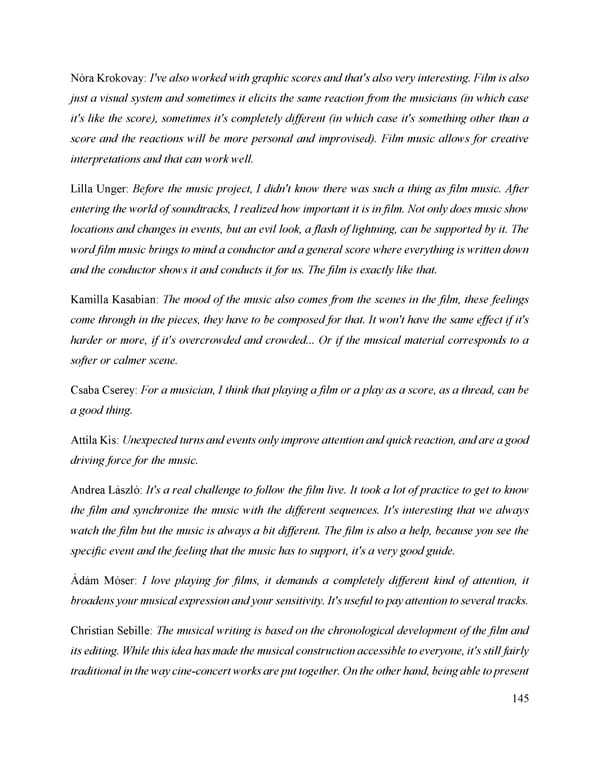Nóra Krokovay: I've also worked with graphic scores and that's also very interesting. Film is also just a visual system and sometimes it elicits the same reaction from the musicians (in which case it's like the score), sometimes it's completely different (in which case it's something other than a score and the reactions will be more personal and improvised). Film music allows for creative interpretations and that can work well. Lilla Unger: Before the music project, I didn't know there was such a thing as film music. After entering the world of soundtracks, I realized how important it is in film. Not only does music show locations and changes in events, but an evil look, a flash of lightning, can be supported by it. The word film music brings to mind a conductor and a general score where everything is written down and the conductor shows it and conducts it for us. The film is exactly like that. Kamilla Kasabian: The mood of the music also comes from the scenes in the film, these feelings come through in the pieces, they have to be composed for that. It won't have the same effect if it's harder or more, if it's overcrowded and crowded... Or if the musical material corresponds to a softer or calmer scene. Csaba Cserey: For a musician, I think that playing a film or a play as a score, as a thread, can be a good thing. Attila Kis: Unexpected turns and events only improve attention and quick reaction, and are a good driving force for the music. Andrea László: It's a real challenge to follow the film live. It took a lot of practice to get to know the film and synchronize the music with the different sequences. It's interesting that we always watch the film but the music is always a bit different. The film is also a help, because you see the specific event and the feeling that the music has to support, it's a very good guide. Ádám Móser: I love playing for films, it demands a completely different kind of attention, it broadens your musical expression and your sensitivity. It's useful to pay attention to several tracks. Christian Sebille: The musical writing is based on the chronological development of the film and its editing. While this idea has made the musical construction accessible to everyone, it's still fairly traditional in the way cine-concert works are put together. On the other hand, being able to present 145
 Lost Analogue: Exploring Film, Music, and Interdisciplinary Methods in Education Page 145 Page 147
Lost Analogue: Exploring Film, Music, and Interdisciplinary Methods in Education Page 145 Page 147